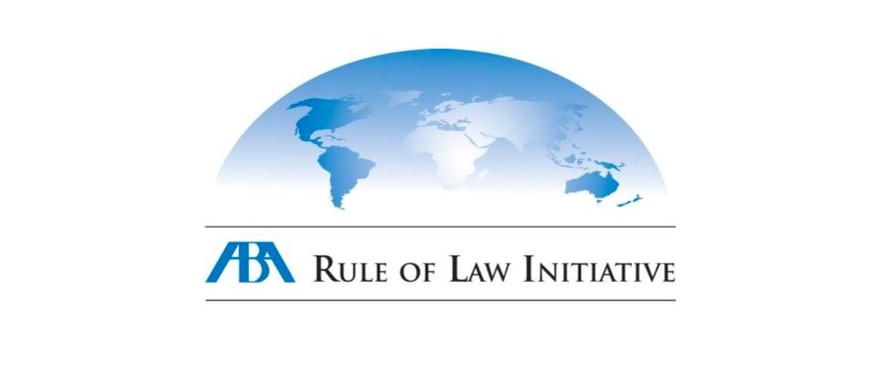Law experts says S Sudan government has ‘no will, no capacity’ to investigate atrocities

A group of legal experts released a report this week that concludes that the South Sudanese government has “not demonstrated any will or capacity” to investigate atrocities or hold perpetrators accountable.
The report produced by members of the American Bar Association states, “Unanimous interviews indicate that there is no current or near-term capacity in the national justice system for accountability proceedings concerning atrocity crimes involving relatively major political or military figures.”
The law group defines ‘atrocity crimes’ as crimes against humanity, genocide, and war crimes, as defined under the Rome Statute of the International Criminal Court, as well as acts of ethnic cleansing.
The 21-page report titled ‘Assessment of Justice, Accountability and Reconciliation Measures in South Sudan’ was produced by the Rule of Law Initiative of the American Bar Association, funded by the US Department of State.
Among its findings is that the South Sudanese government has made no genuine efforts at all to investigate atrocities committed since December: “There is currently little evidence or available public information of any genuine Government accountability efforts, or the results of those efforts, to date.”
“To date, the Government has not demonstrated any will or capacity to hold perpetrators accountable. There is a widely circulated Government claim that some 120 to 200 SPLA soldiers were arrested earlier this year on account of atrocity crimes-type misconduct, but all of them have allegedly since ‘escaped.’”
“When asked, a senior member of the Parliamentary Committee on Human Rights could not identify a single accountability result accomplished by the Government to date,” records the Bar Association report.
Concealing evidence of mass killings
The report states that it is ‘highly likely’ that both government and opposition forces have committed atrocity crimes, especially in Juba, Jonglei, Unity and Upper Nile. This has been admitted by some South Sudanese officials, who blamed ‘uncontrolled elements’ of the security forces, the report notes.
But the report authors question whether the killings were ‘uncontrolled’ or in fact were ‘coordinated and systematic,’ citing the mass killings in Juba in December.
“In apparent contradiction to claims of crimes being carried out by uncontrolled rogue elements or individual soldiers, a principal component of Government military and security services that appears to have committed the coordinated and systematic mass killings in Juba in December 2013 was the Presidential Guard (or Tiger Battalion), which, together with other elements, was largely regarded as President Kiir’s private army, reporting directly to him rather than to the regular military command,” reads the report.
The government still has not revealed where it buried hundreds of people killed in Juba in mid-December, after lorries were seen moving piles of bodies out of Juba.
“Interviewees stated there are already indications of bodies from mass killings being moved from one location to another and possibly concealed. One human rights worker reported that ‘a lot of evidence has already been ‘cleaned up,’” the report states.
The American Bar Association report also claims that there are currently no 'systematic' investigations being carried out by the government to gather forensic and other evidence about such crimes.
Recommendation for ‘criminal investigation’
The report questions the credibility of the African Union Commission of Inquiry and recommends that an alternative body of professionals carry out “criminal investigation and evidence-gathering.”
“Because the existing international investigation mechanism – the African Union Commission of Inquiry – lacks credibility, and is perceived largely as an attempt to prevent or deflect an International Criminal Court process, this report’s recommendation is therefore to pursue an alternative international, professional investigative body.”
The law group envisions a UN Security Council Chapter VII resolution as one possible way of setting up this investigative team, noting that the United Nations Security Council could ‘require’ the South Sudanese government to cooperate with the investigators and with a hybrid tribunal.
The proposed international investigative body would consist of civilian investigators, former military personnel, laboratory experts and other experts divided into three 15-person teams. They would also have aerial surveillance drones, secure facilities for storage of evidence, and a ‘protection element’ to guard them and to secure crime scenes.
According to the report, the investigative teams should not be part of UNMISS.
The UN Security Council could even give them ‘law enforcement powers’ including subpoena power and search warrant authority, according to the Bar Association.
Investigations of this team would result in prosecutions of individual criminal perpetrators at a hybrid international-South Sudanese court.
“If the Government continues to refuse to agree to the creation of a hybrid tribunal, an International Criminal Court referral or the creation of an international tribunal under Chapter VII should at least be considered as an alternative accountability mechanism,” the US lawyers conclude.
They add that the investigators should be deployed ‘as soon as possible’ because the government and opposition forces are already allegedly destroying evidence.
Related:
Senior US official endorses law group’s recommendation (16 July)